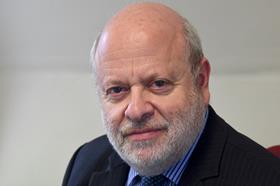There are many angles of reflection provoked by the European Court of Human Rights (ECtHR) decisions on climate change (for background, see the court’s information sheet).

Rather than discuss the detailed law involved, or the question of whether we should stay in or out of the Council of Europe, some other trends struck me.
The court explained its decision at great length (260 pages, over 700 paragraphs, over 120,000 words, many case citations). There is much about the scientific and legal background to climate change, not only in Europe but around the world, a useful source of future information.
One of the court’s citations was from the UK case of Plan B Earth and four other citizens v Prime Minister. The particular quotation which stood out came from the application to the Court of Appeal for permission to appeal against the High Court’s refusal to grant permission to apply for judicial review in that case, when Lord Justice Singh said:
‘... The fundamental difficulty which the claimants face is that there is no authority from the European Court of Human Rights on which they can rely, citing the Paris Agreement as being relevant to the interpretation of the ECHR, Articles 2 and 8. They do rely on decisions of the highest courts of other parties to the ECHR, in particular the Supreme Court of the Netherlands, but, as the Judge observed in the present case, we do not know what the constitutional context was for such decisions. Section 2 of the HRA requires courts in this country to take into account relevant decisions of the European Court of Human Rights. In general, we follow those decisions.’
This is practically an open invitation from the UK courts to the ECtHR to rule on climate change, so that the UK courts can follow them. There will be other courts in Europe similarly waiting for a decision. Well, now it has come.
We can decide to become very agitated about a ruling on climate change from an international court. But it seems pointless, because the direction of travel regarding climate change is clear.
First, as the judgment in the KlimaSeniorinnen case highlights, many environmental factors have already been accepted (in over 300 judgements by the ECtHR) as impacting human rights, particularly Article 8 rights on respect for private and family life and home.
Second, the Council of Europe is at an advanced stage of a report on ‘the need for and feasibility of a further instrument or instruments on human rights and the environment’, which debates the case for a new human right to a healthy environment. The UK is represented in this work by civil servants from the FCDO and DEFRA. This report does not come out of the blue, either, as the Council of Europe points out that all its member states (which includes the UK) voted in favour of a UN General Assembly resolution in July 2022, recognising the right to a clean, healthy and sustainable environment as a human right related to other rights and existing international law.
So, whether it is the KlimaSeniorinnen case today, or some other case in the future, this is the legal direction of travel for all of us, wherever we live. It should come as no surprise. The UK has already voted for it at the UN.
There is another aspect of the case which interested me. There were UK lawyers involved in the successful outcome, and I congratulate them. At least one of those lawyers is active on social media, and clearly identifies strongly with the interests which were pursued by the KlimaSeniorinnen activists. I see nothing wrong with that.
But it plays into the current debate about whether lawyers should be identified with their clients’ interests. Article 18 of the UN Basic Principles on the Role of Lawyers says that they should not be so identified. The English bar supports this as one of the underpinnings of the cab rank rule.
But it seems to me that we can’t have it both ways. We can’t go out of our way to identify ourselves with our clients’ interests in some cases, but then the next moment insist that no-one identifies us with our clients’ interests since it no longer suits us. Our position begins to lack credibility.
I think that Article 18 of the UN Principles clearly applies in all criminal cases (and, interestingly, the UN Basic Principles from which it is drawn came from a 1990 congress on the prevention of crime). But I think that, among other factors, lawyers’ own conduct in the social media age means that the principle has too many holes in it in civil cases for us to be able to use it for much longer.
These are only some of many reflections on a very newsworthy case, which deserves widespread study by lawyers.
Jonathan Goldsmith is Law Society Council member for EU & International, chair of the Law Society’s Policy & Regulatory Affairs Committee and a member of its board. All views expressed are personal and are not made in his capacity as a Law Society Council member, nor on behalf of the Law Society































7 Readers' comments